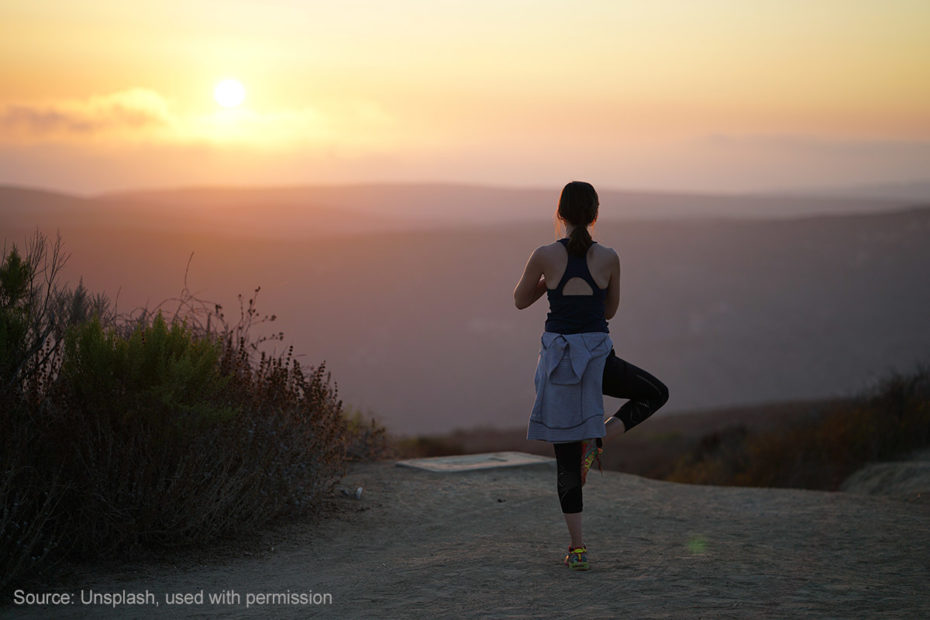Built-in habits and mindsets that foster health, resilience and creativity
Crises, while extraordinarily disruptive, also present opportunities for growth, agency, and transformation. While COVID-19 has uprooted our sense of stability, distanced us physically from supportive friends and family, and caused tremendous stress, there are a few easy things we can do every day, starting right now, to control the things we can, build resilience, and stay healthy.
Although science tells us that stress “gets under the skin” and can affect our brains and bodies in critical ways, it also tells us that healthy lifestyle habits, positive experiences, and narrative – the stories we tell ourselves about our lives—are equally as potent. These “ingredients,” particularly in combination, comprise a powerful antidote to stress. During the current coronavirus pandemic the 8 ingredients shared below are not just helpful—they are essential.
Of equal importance – all come directly from inside of us – and not a pharmacy. They are “Mother Nature’s Oxygen Mask”, available any day, any time.
All that’s required to press the reset button to neutralize stress is consistent practice. The brain coats the neural pathways that are most frequently used in a substance called myelin – which makes them faster and more efficient by preventing electrical impulses from leaking out. Think dial-up modem vs. high-speed internet! As it relates to us humans, this means that behaviors and mindsets that once felt clunky and awkward, over time, become effortless, automatic habit.
Let’s start by setting the table for a better understanding of how experience gets folded into our biochemical make-up at a cellular level. There are three major concepts, grounded in science, guiding our recipe:
Nurture Shapes Nature: Each and every one of us is an ongoing work-in-process, malleable and changing in dynamic ways by the nanosecond. The lifestyle choices we make shape how our DNA is read and expressed.
What’s Real in the Mind is Real in the Body: Epigenetic research reveals that it is not necessarily objective reality that affects our biochemistry as individuals, but instead our perception of that reality. By intentionally shaping our self-narratives, transforming challenges into growth opportunities, and by actively ascribing strong, capable, and resilient characteristics to ourselves, we are actively building new neural pathways that reinforce these very qualities.
Mental and Physical Health are Two Sides of the Same Coin: Third, the same biochemicals that affect our brains also affect our bodies. This means that engaging in activities that promote the health of our emotions also promotes the physical health of our bodies.
Self-Care: 8 Ingredients for Health and Wellness
Now that you have the essential concepts, here are eight time-tested things you can do today. As they say on an airplane, “Put on your own oxygen mask first!”
1) Exercise Every Day: Try and get at least 30 minutes, inside (get creative!) or outside (ideal because you gain the health benefits of connection with nature, and also soak up Vitamin D if the sun is out). If there is one magic pill we can take every day to improve mental and physical health, mood and mental clarity—exercise is it.
2) Prioritize Sleep: When we sleep, our brains recharge, our bodies heal, and our immune systems power up for the day ahead. Stick to regular bedtimes and wake-up times, shut down screens an hour before bed, and remember: no technology in the bedroom.
3) Make Healthy Choices with Food and Drink: Digestive health has a formidable effect on mood and cognitive clarity. Lean proteins, such as fish, lentils and chicken, are easier to digest and more efficient at fueling your body than red meats. Colorful vegetables are loaded with antioxidants that boost immunity and reduce inflammation. Choose fruit over cookies, avoid soda, minimize alcohol consumption and drink lots of water.
4) Practice Mindfulness Meditation: Meditation reduces stress by dampening the “fight, flight or freeze” response, improves mental clarity and mood, bolsters heart health, improves the efficiency of our GI systems, and increases immunity by reducing inflammation.
5) Keep a Gratitude Journal: Find something, anything, to feel grateful for. Write it down in a journal you keep next to your bed just before you go to sleep at night, so that you the positive biochemistry of gratitude infuses into your epigenome.
6) Offer Service to Others: Whether it’s reaching out to a friend in need or giving the extraordinary gift of a random act of kindness, research tells us that the mental and physical health benefits can be even stronger for the one who gives than the one who receives.
7) Savor Quality Time: As technology threatens to eviscerate authentic human connection, we must learn to reconnect as human beings—in person and virtually, our hearts full and our minds focused—with those we love.
8) Surround Yourself with People Who Feel Like Sunlight: Emotions are contagious – for better and for worse. So, seek out family members and friends who make you laugh so hard that you crinkle your eyes (biochemically distinct from a polite smile), who make you feel seen, heard, and valued. These people are our neurobiological rocket fuel.
We are all in the coronavirus crisis together, and hand-in-hand we can do this! But we must start by taking good care of ourselves. Having full batteries, emotionally and physically, will fuel us with capacity to support our families and communities. One foot in front of the other, with discipline and intention, we will build new habits that foster greater health, mental wellness, and quality of life now and for the years ahead.
A version of this article was first published by Turnaround for Children on the 180 Blog.
